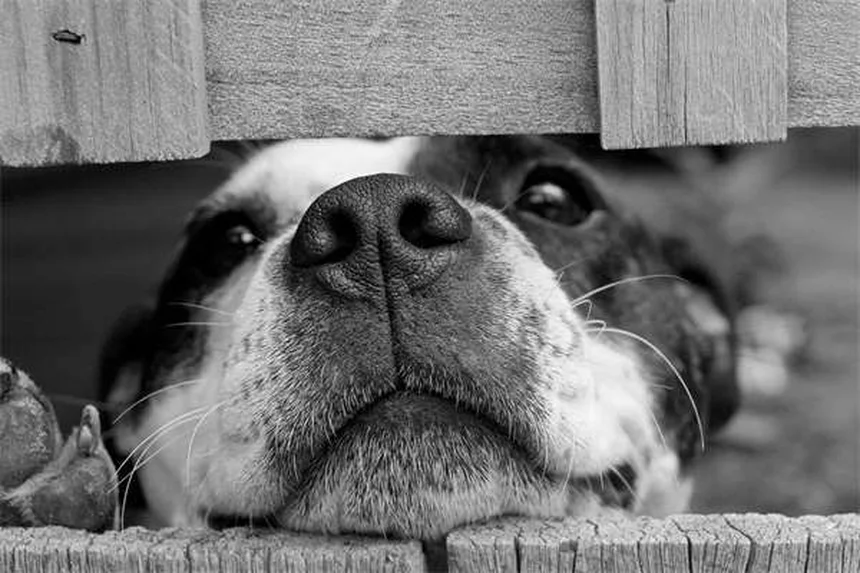Advertisement
Does your hamster have a tumor? The answer is: Yes, hamsters commonly develop both benign and cancerous growths, especially as they age. I've seen countless cases where owners notice a small lump that turns out to be serious. The good news? Many tumors are treatable if caught early. In this guide, we'll walk you through everything from spotting the first signs to understanding treatment options. You'll learn why dwarf hamsters are more prone to tumors than Syrians, how to tell if that weird bump is dangerous, and when it's time to rush to the vet. Let's get started protecting your furry friend!
E.g. :How to Calm an Overstimulated Cat: 7 Vet-Approved Tips
- 1、Understanding Tumors and Cancers in Your Hamster
- 2、Spotting Trouble: Symptoms You Can't Miss
- 3、What Causes These Growths Anyway?
- 4、Getting Answers: The Vet Visit Breakdown
- 5、Fighting Back: Treatment Options Explained
- 6、Life After Diagnosis: Managing Your Hamster's Health
- 7、Your Burning Questions Answered
- 8、Beyond the Basics: Exploring Hamster Health Further
- 9、The Financial Side of Hamster Healthcare
- 10、Prevention: Your Best Defense
- 11、The Bigger Picture: Hamster Health Research
- 12、When to Say Goodbye: Making Tough Decisions
- 13、Looking Ahead: The Future of Hamster Care
- 14、FAQs
Understanding Tumors and Cancers in Your Hamster
What Exactly Are These Bumps?
Picture this: You're petting your hamster and suddenly feel a weird lump. That's a tumor - basically a clump of cells growing where they shouldn't. Now, here's the good news: many hamster tumors are like that annoying neighbor who stays in their own yard (benign). The bad ones? They're like party crashers spreading everywhere (malignant).
Hamsters typically get these growths in their adrenal glands, reproductive organs, or skin. Skin tumors are usually the troublemakers, while others might just sit there looking scary. Dwarf hamsters seem to win the unlucky lottery here - they get tumors more often than their Syrian cousins.
Why Should You Care?
Ever seen a hamster with a weird lump that won't stop grooming one spot? That could be a red flag. These growths aren't just cosmetic issues - they can mess with your pet's entire system. Think of it like a computer virus slowing down your favorite game.
Spotting Trouble: Symptoms You Can't Miss
 Photos provided by pixabay
Photos provided by pixabay
The Obvious Signs
Some symptoms hit you right in the face:
- Visible lumps (like tiny golf balls under the skin)
- Bald patches where your hamster keeps scratching
- That "I don't feel like running" look in their eyes
Did you know hamsters can get depressed too? When they stop playing with their favorite wheel or ignore treats, something's definitely up.
The Sneaky Symptoms
Other signs creep up slowly:
| Symptom | What It Might Mean |
|---|---|
| Drinking like a fish | Possible kidney or adrenal issues |
| Weight loss despite eating | Tumor interfering with digestion |
| Blood in poop | Internal growths causing trouble |
Here's a question: Why would a hamster suddenly start overgrooming one spot? It's often their way of dealing with pain or discomfort from a hidden tumor. They'll lick and chew at the sore area like we'd rub a sore muscle.
What Causes These Growths Anyway?
Nature vs. Nurture
It's the age-old question - is it genes or environment? For hamsters, it's both. Some are just born with bad luck in the genetic lottery, while others develop issues from:
- Poor diet (yes, those cheap pellets matter)
- Stressful living conditions
- Just plain old age
The adrenal gland seems to be the most popular spot for benign tumors, while skin takes the crown for cancerous ones. Up to 90% of hamster cancers start in the skin - that's like 9 out of 10 trouble cases!
 Photos provided by pixabay
Photos provided by pixabay
The Obvious Signs
Here's something wild - even benign tumors can cause problems by pumping out too many hormones. Imagine your hamster's body getting flooded with chemical signals it doesn't need. That's why sometimes removing a "harmless" growth makes a huge difference.
Getting Answers: The Vet Visit Breakdown
First Things First
When you bring your hamster in, the vet will do a full checkup - kind of like when you go to the doctor but with more treats involved. They'll look for:
- Visible lumps
- Changes in weight
- Unusual behavior signs
Ever wonder how vets test such tiny animals? They use something called fine needle aspiration - basically poking the lump with a tiny needle to grab some cells. It's like taking a sample from a cake to see if it's done, but way more scientific.
When More Testing Is Needed
Sometimes the needle test doesn't give clear answers. That's when they might do a biopsy - removing a small piece of the tumor while your hamster naps under anesthesia. The sample goes to a lab where specialists play detective with microscopes.
For internal tumors, vets might use:
- X-rays (hamster size makes this tricky)
- Ultrasound (like checking on a baby but for tumors)
- Blood tests (looking for chemical clues)
Fighting Back: Treatment Options Explained
 Photos provided by pixabay
Photos provided by pixabay
The Obvious Signs
If the tumor is small and in a good spot, the vet might just cut it out. Think of it like removing a splinter - get it all out and the problem's solved. The key is catching it early before it grows roots into other tissues.
Here's what surgery recovery looks like:
- 2 weeks of healing for simple skin tumors
- Special diet during recovery
- Limited playtime (no wheel running for a while)
When Surgery Isn't Enough
For tricky tumors, vets might suggest:
- Chemotherapy (cancer-killing drugs)
- Radiation (targeted energy beams)
But here's the catch - hamsters are tiny, so these treatments hit them harder. Your vet will walk you through the pros and cons, like how human parents weigh treatment options for their kids.
Life After Diagnosis: Managing Your Hamster's Health
The Recovery Roadmap
Healing time depends on the treatment:
| Treatment | Recovery Time | Special Care Needed |
|---|---|---|
| Surgery | 1-2 weeks | Wound care, limited activity |
| Chemotherapy | Months | Frequent vet checks, diet changes |
| Radiation | Weeks | Skin care, monitoring |
You might need to become a hamster nurse - syringe feeding special formulas, keeping their cage extra clean, and watching for any changes.
The Emotional Side
Let's be real - this is tough for you too. Making decisions about treatment, watching your pet recover, and wondering if you're doing enough. Remember, you're giving your hamster the best care possible, and that counts for everything.
Your Burning Questions Answered
How Can I Tell If It's Cancer?
Only your vet can say for sure, but here are warning signs:
- Fast-growing lumps
- Weight loss despite eating
- Changes in bathroom habits
When in doubt, get it checked out. Early detection makes all the difference.
Can My Hamster Beat This?
Many do! Benign tumors often mean business as usual after removal. Even with cancer, proper treatment can buy quality time. Every hamster's different, but hope isn't lost.
Is There a Cure?
Complete removal means cure for many cases. For others, it's about management. Your vet will help you understand your options based on your hamster's specific situation.
Remember - you're not alone in this. Countless hamster parents have walked this path before. With care, attention, and good vet support, you're giving your tiny friend the best shot at happiness.
Beyond the Basics: Exploring Hamster Health Further
The Emotional Impact on Your Tiny Friend
We often forget that hamsters experience emotions just like we do. When they're dealing with tumors or illness, their entire personality can change. You might notice your once energetic ball of fur becoming withdrawn or irritable - that's not just physical discomfort talking.
Hamsters form strong bonds with their owners, and sudden changes in your behavior (like frequent vet visits) can stress them out even more. I've seen cases where a normally sweet hamster turns nippy when they don't feel well. The key is patience - they're not being mean, they're just scared and uncomfortable. Extra gentle handling and maintaining familiar routines can make a world of difference during treatment.
Alternative Therapies Worth Considering
While traditional veterinary care is essential, some complementary approaches can support your hamster's healing:
- Acupuncture (yes, for hamsters!) to manage pain
- Herbal supplements to boost immunity
- Massage therapy to improve circulation
Now, you might be thinking - "How on earth do you give a hamster acupuncture?" It's actually simpler than it sounds. Certified veterinary acupuncturists use tiny needles (sometimes just pressing on points without penetration) to stimulate healing. The sessions are quick, and many hamsters seem to relax during treatment.
The Financial Side of Hamster Healthcare
Understanding Treatment Costs
Let's talk numbers - because surprise vet bills can hit hard. Here's a realistic breakdown of what you might expect:
| Procedure | Average Cost | What's Included |
|---|---|---|
| Initial Consultation | $50-$100 | Physical exam and basic assessment |
| Fine Needle Aspiration | $75-$150 | Cell sample collection and analysis |
| Surgical Removal | $200-$500 | Anesthesia, procedure, and follow-up |
These prices can vary wildly depending on your location and the vet's experience with exotic pets. Always get an estimate upfront - good vets will be transparent about costs before proceeding with treatment.
Budget-Friendly Care Options
If money's tight, don't panic. Many veterinary schools offer discounted services through their teaching hospitals. Some animal shelters have low-cost clinics, and certain medications can be compounded at human pharmacies for significant savings. The key is being upfront with your vet about financial constraints - they can often suggest modified treatment plans or payment options.
Prevention: Your Best Defense
Dietary Changes That Matter
What goes into your hamster's bowl plays a huge role in cancer prevention. Ditch those colorful, sugary commercial mixes - they're like feeding your hamster candy all day. Instead, opt for:
- High-quality lab blocks as a base
- Fresh veggies (in hamster-sized portions)
- Occasional protein boosts like mealworms
I've seen hamsters thrive on simple, balanced diets. Their tiny bodies don't need fancy treats - just proper nutrition. Avoid seed-heavy mixes that let them pick out favorites and ignore the healthy stuff. It's like when kids would eat only the marshmallows from cereal - cute but not nutritious!
Environmental Factors You Control
Your hamster's home environment impacts their cancer risk more than you might think. Here's what really makes a difference:
First, bedding choice matters. Avoid cedar and pine shavings - the aromatic oils can irritate their respiratory system. Aspen or paper-based bedding is safer. Second, keep their cage away from direct sunlight and electronics that emit EMF radiation. While research is limited, some studies suggest prolonged exposure might increase cancer risks in small animals.
The Bigger Picture: Hamster Health Research
What Science Is Discovering
Researchers are making fascinating discoveries about hamster tumors that could help both pets and people. Recent studies show that certain hamster cancers respond similarly to human cancers when treated with immunotherapy. This makes them valuable models for testing new treatments before human trials.
Another breakthrough involves genetic markers that predict cancer susceptibility. While not yet available for pet hamsters, this research could someday help breeders produce healthier lines. Imagine being able to choose a hamster with lower genetic risk factors - it's like knowing your family medical history before adopting!
How You Can Contribute
If the worst happens and you lose your hamster to cancer, consider donating their body to veterinary research programs. Many universities welcome such donations to further their studies. It's a meaningful way to honor your pet's memory while potentially helping future generations of hamsters. Your vet can guide you through the process if this interests you.
When to Say Goodbye: Making Tough Decisions
Quality of Life Indicators
This is the hardest part of pet ownership, but being able to assess your hamster's quality of life is crucial. Ask yourself:
- Are they still eating and drinking normally?
- Do they show interest in their surroundings?
- Can they move comfortably without pain?
Create a simple daily log tracking these factors. When bad days outnumber good ones, it might be time to discuss humane euthanasia with your vet. This decision is never easy, but it's the ultimate act of love when suffering can't be relieved.
Grieving Your Tiny Companion
Don't let anyone tell you it's "just a hamster." These little creatures leave big holes in our hearts when they're gone. Allow yourself to grieve - make a memorial, create art, or even write a letter to your pet. Many veterinary schools offer pet loss support groups, and online communities understand this unique pain.
When you're ready, consider honoring your hamster's memory by donating to cancer research or volunteering at a shelter. Transforming grief into something positive can be incredibly healing.
Looking Ahead: The Future of Hamster Care
Emerging Veterinary Technologies
Exciting advancements are coming to exotic pet medicine. Miniature MRI machines designed specifically for small animals are in development, allowing for earlier and more accurate tumor detection. Some veterinary hospitals now offer laser surgery for precise tumor removal with faster recovery times.
Telemedicine is another game-changer for hamster owners. With high-quality smartphone cameras, you can now consult with exotic pet specialists worldwide without stressful travel for your tiny patient. While hands-on exams are still essential, these virtual consults can provide valuable second opinions.
Becoming an Advocate
Your experiences with your hamster's health journey make you uniquely qualified to help others. Consider sharing your story on hamster care forums or social media groups. Practical tips from someone who's been there can ease another owner's anxiety during a difficult time.
You might even inspire someone to seek veterinary care sooner rather than later. In the hamster community, we look out for each other - because these little lives matter more than most people realize.
E.g. :Tumors and Cancers in Hamsters | PetMD
FAQs
Q: How long can a hamster live with a tumor?
A: Here's the straight talk - it completely depends on the tumor type and location. Benign tumors? Your hamster might live a normal lifespan with proper care. We've seen cases where a simple removal gives them years more. But aggressive cancers? Maybe just weeks to months. The key is getting your vet's assessment ASAP. I always tell owners: Don't assume the worst until you get that professional opinion. Many hamsters bounce back surprisingly well after treatment!
Q: Are hamster tumors painful?
A: This one breaks my heart - yes, tumors can cause significant pain. Imagine having a growing mass pressing on organs or nerves. That's why we watch for signs like overgrooming one spot or changes in behavior. The silver lining? Proper pain management exists. Your vet can prescribe safe medications to keep your little buddy comfortable. Never try human painkillers though - they're often deadly for hamsters.
Q: How much does hamster tumor removal cost?
A: Let's be real - vet bills add up. In my experience, expect $200-$500 for basic tumor removal. Complicated cases or cancer treatments? Could hit $1,000+. Here's my pro tip: Pet insurance or care credit can help. But before you panic, call your vet for an estimate. Some clinics offer payment plans. Remember - you're not just paying for surgery; you're buying more quality time with your furry family member.
Q: Can hamster tumors burst?
A: Yes, and it's an emergency. I've handled cases where neglected tumors rupture, causing bleeding and infection. Skin tumors are especially prone to this if your hamster scratches them. If you see any open wound on a tumor, wrap your hamster in a clean cloth and get to the vet immediately. Prevention is key - address lumps early before they reach this dangerous stage.
Q: Do hamster tumors grow back after removal?
A: Here's the honest truth - sometimes they do. Benign tumors usually stay gone if completely excised. But aggressive cancers? They might return within months. My advice? After surgery, check the area weekly for regrowth. Keep follow-up vet appointments. And most importantly - enjoy every day with your hamster, whether it's months or years. Their small size makes them fragile, but their capacity for love is huge.







